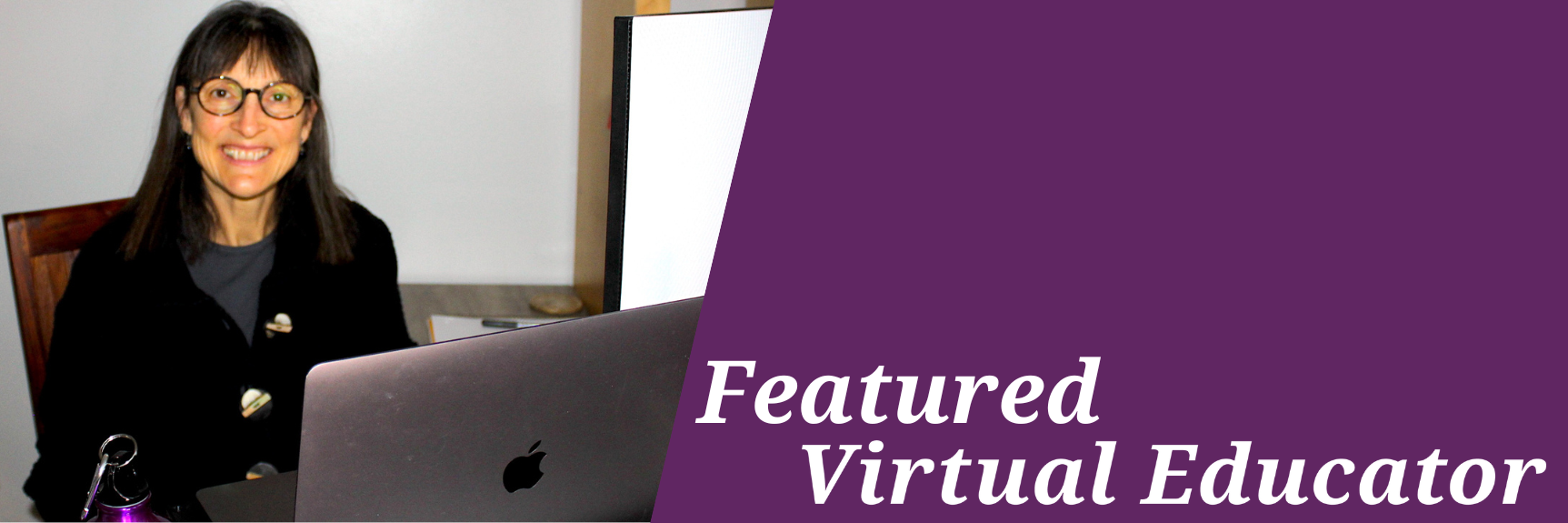I delight in naming and acknowledging the potential and talent I see displayed in others, whispering a few words of encouragement, and ushering them onto life’s stage to see what they will accomplish.
Catherine Brown was excited and grateful after receiving her online-teaching assignment with the Virtual English Language Educator Program. Through decades of teaching English in the United States to immigrants from Mexico, she had already developed a strong interest in Mexican culture. Now assigned to work with the Escuela Normal de San Felipe del Progreso (ENSFP), a teacher-training institution, Brown found herself researching the locally indigenous Mazahua culture, which has a significant presence in the region. Speaking of her partner institution, she likens ENSFP to the “cuna” or cradle of the Mazahua people.
Brown’s role as a Virtual Educator at ENSFP was not limited to just teaching English classes. Beyond teaching English to pre-service teachers and instructional staff, she also facilitated online programs, created content for intercultural exchange, and led exam preparation sessions. Moreover, she came to know Dr. Cynthia Ramirez, the head of the English department, and together they developed a deep collaborative partnership, including designing a new course section titled “English for Teaching Purposes.” This course was inspired by Charlotte Danielson’s research on a teaching evaluation framework.
Leveraging a Full Career
Over the course of her career, Brown has gained experience in a variety of relevant areas, including English for academic purposes, exam preparation, building conversation skills, and literacy development. In her current assignment with ENSFP, Brown’s focus on English for teaching purposes supports her commitment to recognizing and confronting the unique challenges faced by educators who work in non-English speaking contexts. Through the introduction of research-supported practices, such as a teaching evaluation model that was new to the partner institution, she was able to enhance the quality of English instruction and support the professional development of preservice teacher trainees.
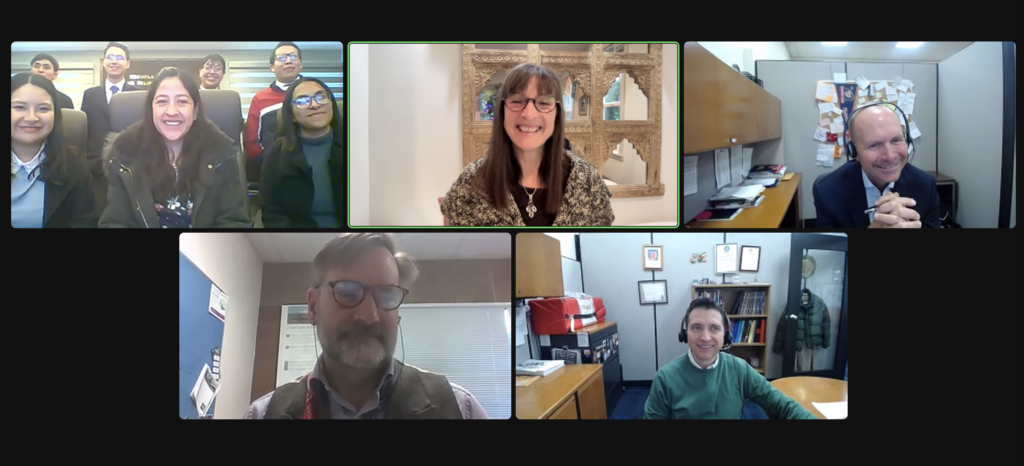
An Opportunity for Colleagues
I find that often my students don’t see the miracle I see, and when I point it out to them, they surprise themselves with what they’re capable of.
Brown’s impact as a Virtual Educator has extended beyond the classroom. Through her dedication to not only the course content but also to supporting the success of her colleagues and students, she has become a valued mentor and partner in the ENSFP teaching community. Brown’s ability to recognize the potential in other educators and nurture a collaborative spirit has motivated those around her. Dr. Ramirez expressed her gratitude, stating, “Catherine, we love you here because you give us hope.”
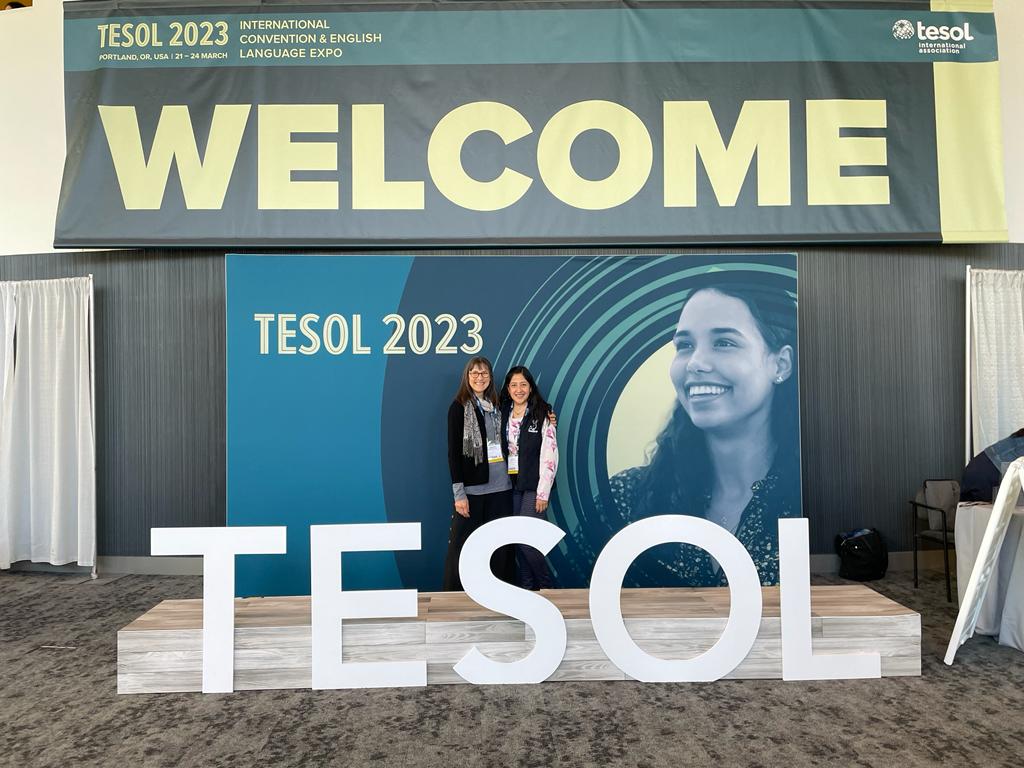
Brown’s dedication to fostering cross-cultural understanding has also had a notable impact on her students. By sharing the breadth of knowledge and experience that come with having a full career, she has enriched her learners’ understanding of both English language education and U.S. culture. She has also created meaningful connections—reaching far beyond the initial scope of her virtual project. At last year’s TESOL International Convention, held in Portland, Oregon, Brown hosted Ramirez at her own home for a week of professional development and in-person cultural exchange.
Memorable Moments: From Online to In-Person
I first traveled abroad soon after college. It changed my life, and I’ve been interested in cultural diversity and building relationships ever since.
Joining Ramirez at the 2023 TESOL International Convention was one of the memorable moments of Brown’s Virtual Educator journey. Another highlight resulted from a lesson on passports and visas that sparked the idea for a school-to-school exchange project. After planting the seed during online instruction, and then inspired by her students’ curiosity about international travel, Brown contacted U.S. public schools local to her in the Pacific Northwest. She even got back in touch with a former colleague and current school administrator. Together, they have successfully organized a pedagogical exchange program that will allow several students at ENSFP to visit from Mexico and experience K-12 school education at Trout Lake School District in Washington state.
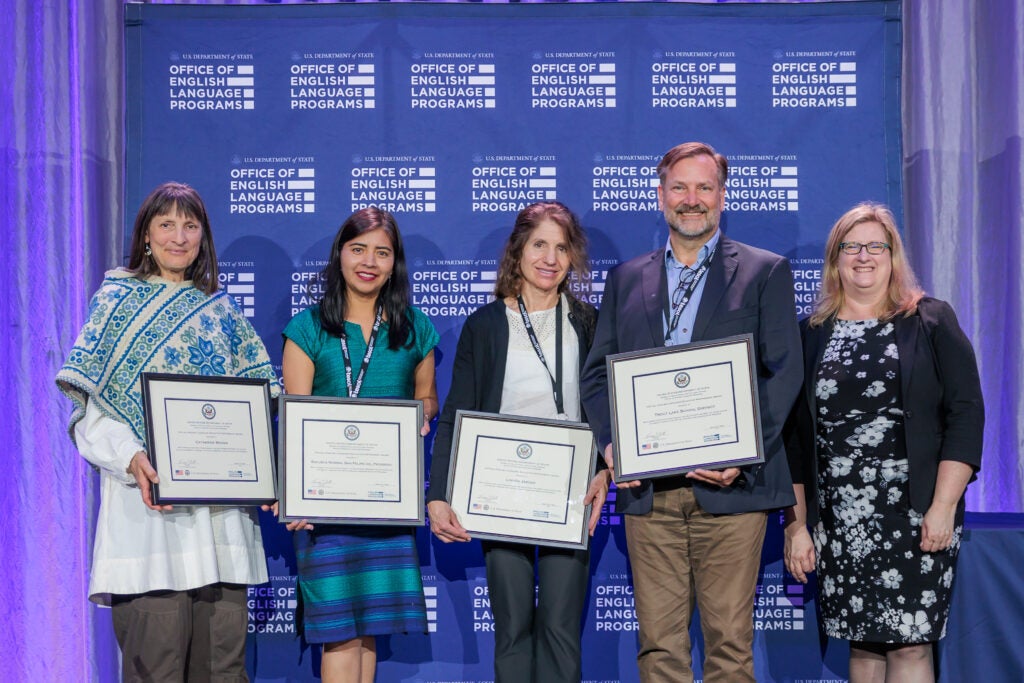
Reflecting on the totality of her experience as a Virtual Educator, Brown shared, “I loved accompanying Dr. Ramirez around TESOL in Portland last spring. Her enthusiasm was infectious, and it made for great collaboration. Being able to discuss ideas and spin-offs from the presentations we attended was truly rewarding.”
Strengthening Partnerships: Challenges and Triumphs
It was gratifying to listen to [the ENSFP teachers] utilizing their English so confidently and masterfully. My only regret was that we couldn’t bring all six of them!
Organizing the in-person exchange with Trout Lake School District has presented itself as a unique capstone on her Virtual Educator experience. And although there have been minor logistical challenges along the way, Brown’s collaborative spirit still shines. After getting the community buy-in needed to generate support for the project, she has continued to serve as a facilitator throughout the exchange process. Despite some limitations in scope, such as only being able to select a small number of teachers from ENSFP—of which there were many who were eager—the exchange promises to be a transformative professional and cultural experience for all involved.
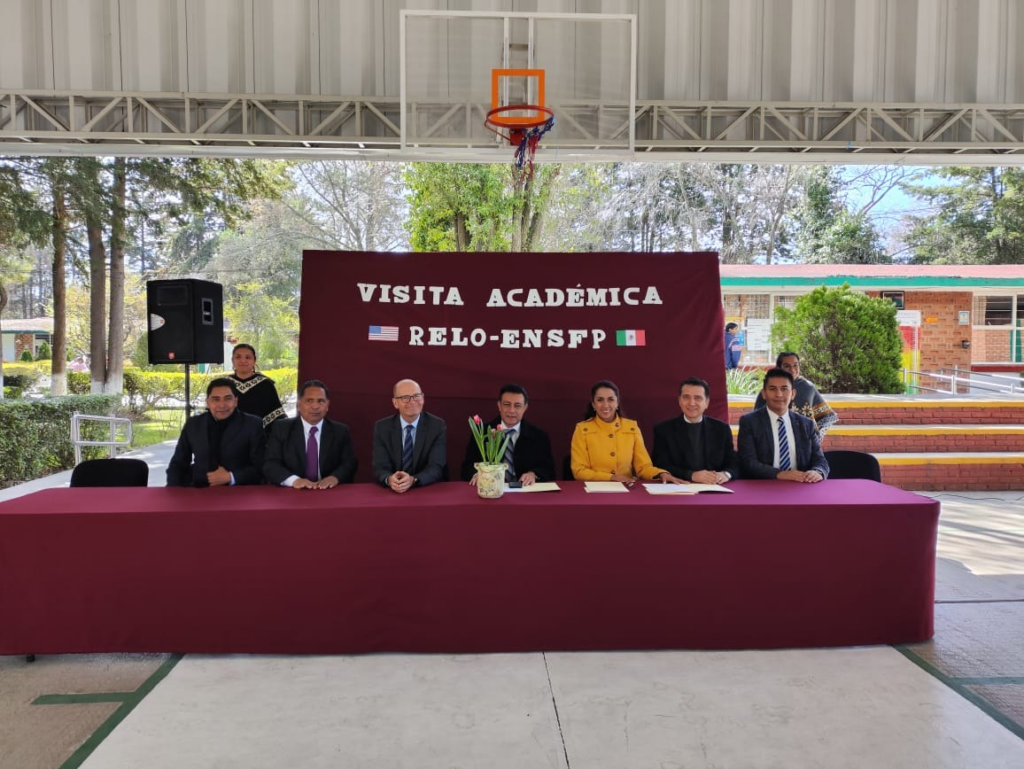
Brown’s dedication to education and the craft of teaching has positively impacted her students, colleagues, and community. Through her gratitude, experience, and vision, she has been instrumental in creating learning opportunities that support professional growth. As her journey as a Virtual Educator concludes, Brown’s commitment to embracing cultural exchange, in any modality, serves as a model of possibility.
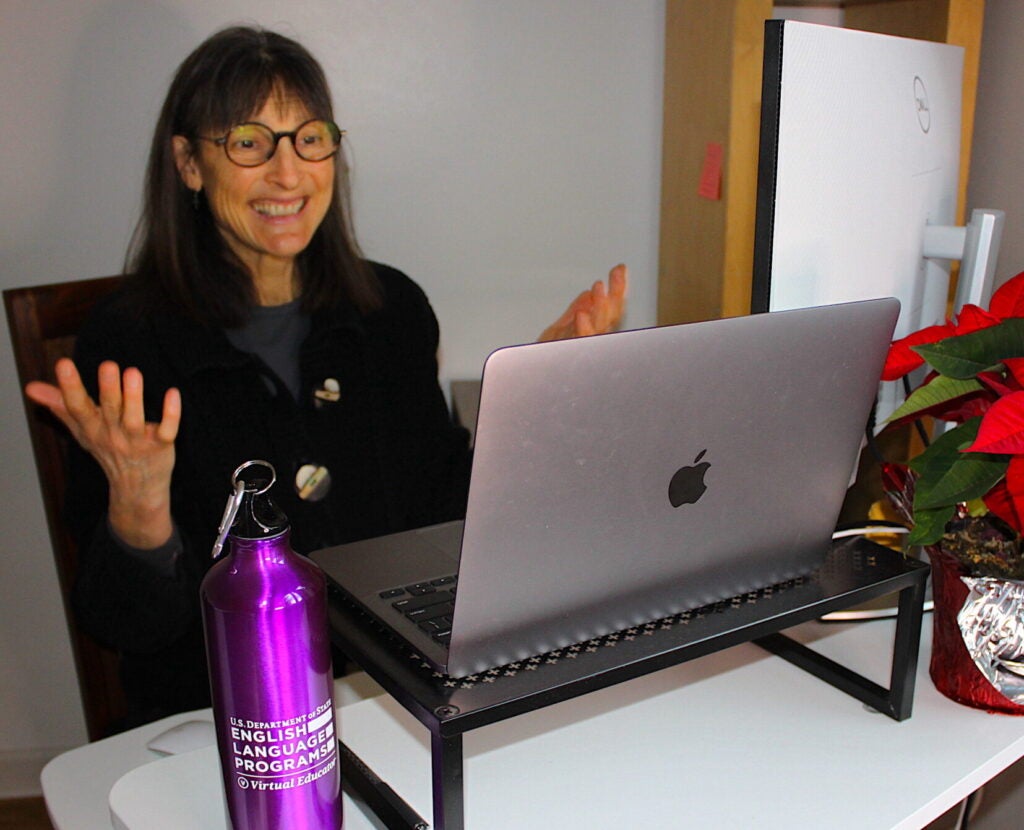
Catherine Brown, M.A. has spent over three decades working with non-native English speaking learners aged kindergarten through adult. This includes a decade conducting teacher trainer seminars for the Bureau of Education and Research; supporting teachers of English language learners in school districts in 48 states; developing courses on pedagogy for the K-12 classroom; designing the content and guiding featured classroom teachers for a video course on the topic of engaging English learners; conducting courses for Portland State and Antioch Universities; teaching in schools in the US, India, and Vietnam; and working with Buddhist monks residing in India, Bhutan, and Nepal. Her current interest is in exploring how the teaching of English can empower native and wisdom traditions to participate in and enrich global conversations. She currently lives and teaches from her home in the Columbia River Gorge, nestled below the twin peaks of Mt. Adams and Mt. Hood in the Pacific Northwest.

